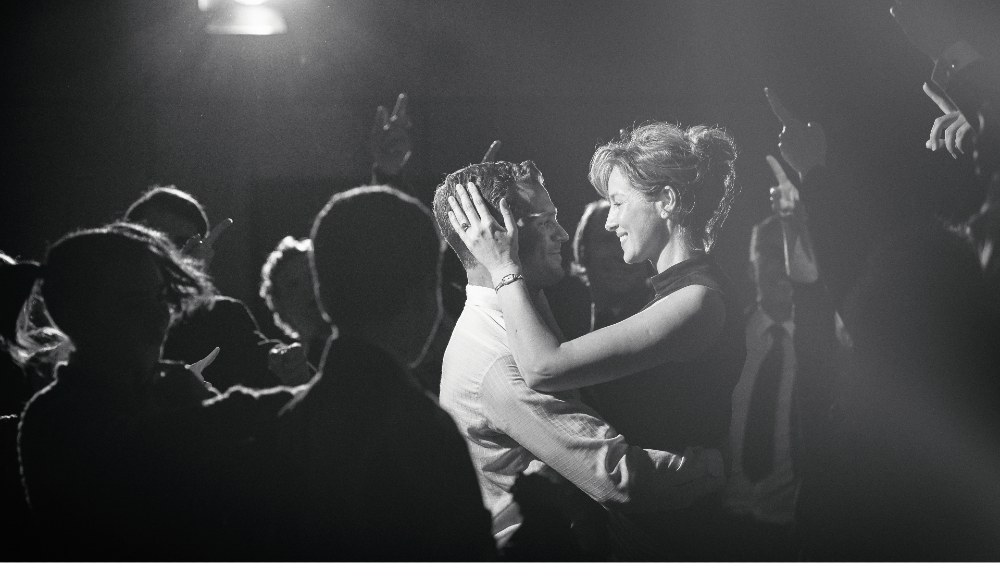
I feel like I should preface this review by confessing I’ve been a long-time Sir Kenneth Branagh stan, in fact, some might even call me a Branagh apologist. There have been more than a few movies Branagh directed that I seemingly liked far more than other critics. Not every movie he’s directed has been perfect and more than a few have completely missed their mark, but it’s delightful to see Branagh finally getting his due respect as a filmmaker for the first time maybe since the ‘90s.
With that in mind, let’s get into Belfast, which is by far, Branagh’s most personal movie, and that’s because it is, in fact, more than slightly autobiographical. It follows a young Belfast lad named Buddy (newcomer Jude Hill), who in the summer of 1969 is enjoying all the fun and music of the neighborhood when it’s hit by “The Troubles,” the civil war-level conflict that struck Northern Island as Protestants lashed out against their Catholic neighbors. Buddy’s street seems to be the center of said conflict, something that hits the viewer quite squarely as the film opens in color to shots of modern-day Belfast and a Van Morrison tune. (Let’s just say that if you don’t like Van Morrison, this movie will not be for you. In fact, all the music is by Van Morrison, and while I’m not particularly a fan myself, it just works well for the tone Branagh is trying to create throughout his film, so be it.)
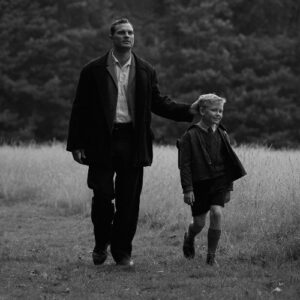
The film then makes a sudden transition into black and white, as we flash back to a lovely summer afternoon in 1969 when all the children on Buddy’s street are playing, everyone is happy and smiling, and there’s even some singing and dancing. Before you can fully take in this awe-inspiring scene, an angry mob invades the impromptu block party with the intention to abolish the neighborhood’s Catholic residents. Barricades are set up and soon, the street on which Buddy’s family lives has become a war zone, with Buddy’s Pa (Jamie Dornan) trying not to get dragged into the racist violence.
There have been a lot of great films about “The Troubles” over the years — too many to mention, in fact — but Belfast is different in that it comes from the viewpoint of a child, in this case with young Jude Hill showing off his ability to steal scenes from his far more experienced co-stars, including Judi Dench and Ciarán Hinds, who play his grandparents. In some ways, it reminds one of other fine pre-teen thespians like Jojo Rabbit’s Roman Griffith Davies a few years back, where the filmmakers have clearly found an undeniable star in the marking.
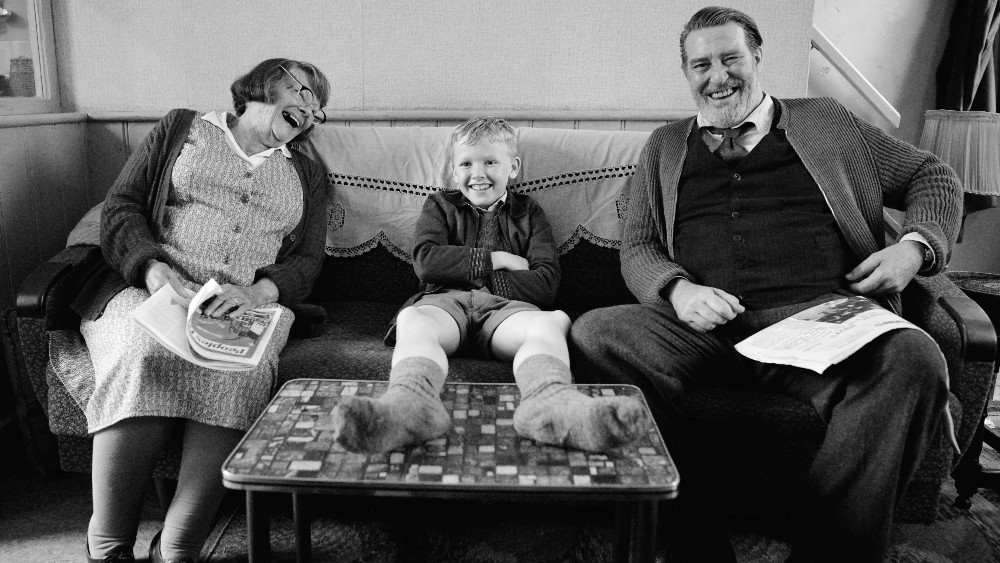
Branagh surrounds Hill with just an incredible ensemble cast to help achieve the desired therapeutic catharsis on difficult memories from his childhood, but the true standout is Caitríona Balfe (Outlander) as Buddy’s Ma, who just has to go through so many emotions, as her husband is forced to return to London for work, counter to his desire to get his family out of Belfast, as things get uglier and more dangerous. After all, this isn’t just a story about Branagh surrogate Buddy, but it’s also about how the romance between his parents is threatened by the conflict and his Pa’s constant departures. Of all the incredible performances on display, including stalwart pros like Dench and Hinds who both offer the film powerful moments, I would be gobsmacked if Balfe doesn’t earn at least an Oscar nomination for her performance.
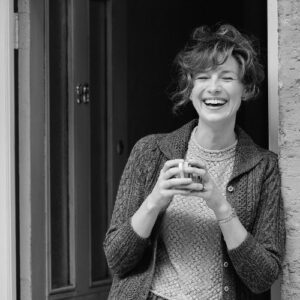
There’s a good reason why Belfast won the People’s Choice Award at the Toronto Film Festival a few months back, and that’s because it’s a true crowd-pleaser with equal parts drama, humor, and music mixed in with the horrors of the regional conflict. Working from his own screenplay — his first produced screenplay in 15 years — Branagh does fall into a few screenwriting traps. Belfast feels very episodic where we go from one disparate scene to another, and then another, and that makes it feel quite disjointed and somewhat erratic, especially in terms of the tonal jumps from joyous glee to absolute horror with the predicament Buddy’s father is put in by his family wanting to remain in Belfast.
As mentioned, Branagh chose to film the majority of Belfast in black and white, which means that the camerawork by Haris Zambarloukos BSC GSC and his team is going to get a considerable amount of scrutiny. Personally, I’m not sure this movie even needed to be black and white, since it just makes comparisons to Alfonso Cuaron’s Roma that much easier to make. Branagh does use the choice to introduce a number of fairly brilliant bursts of color whenever Buddy and his family are at the cinema, watching movies of the time like One Million Years B.C. or even stage plays, which are jarringly, in color. It’s fairly clear how this entertainment is influencing the young Kenneth/Buddy to one day want to pursue acting and filmmaking himself.
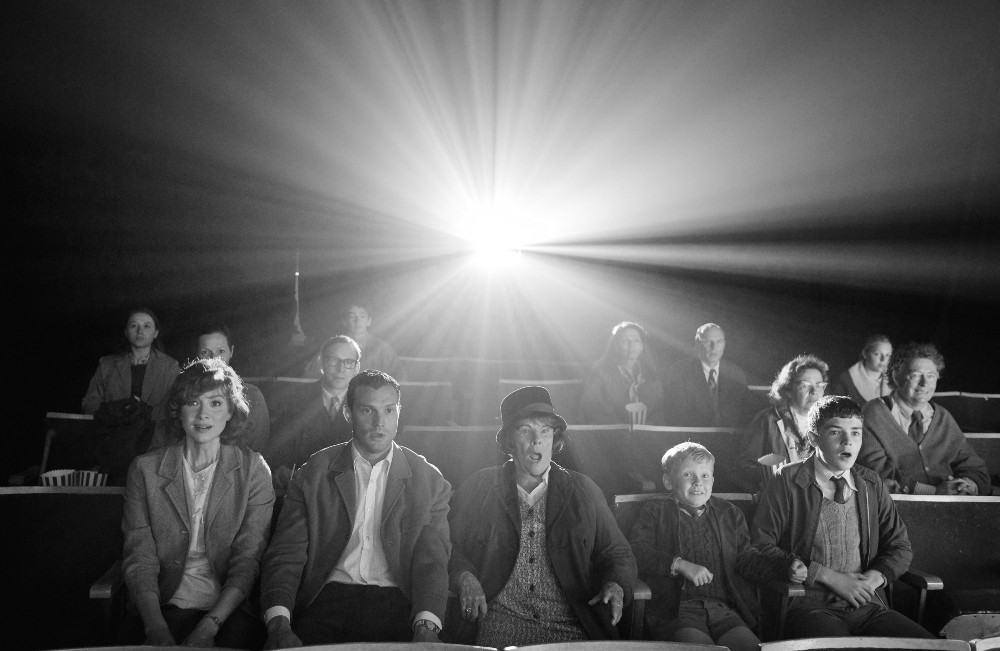
Branagh is no stranger to Shakespeare, having adapted many of the Bard’s films to the screen, and in that sense, the street that makes up the film’s primary location and the various houses on said street represents a brilliant bit of production design from Jim Clay (Children of Men), as are the various interiors, which never drift too far from the film’s central location. Editor Úna Ní Dhonghaíle ACE BFE (The Crown) may have the toughest task to pull all the film’s disparate moods into a single cohesive narrative, but she does an impeccable job, probably even being Branagh’s saving grace at times.
The music, as mentioned, is all by Van Morrison, which creates a specific tone and mood that works better in some scenes than others. In some of the more joyous moments, you may find yourself wondering why you don’t listen to more Van Morrison.
Maybe it’s odd to call too much attention to Charlotte Walter’s costumes, because Belfast fashion of 1969 wasn’t exactly couture, but as they say, clothes do make the man and women, and that’s especially true in Belfast. Likewise, the makeup and hair departments bring a lot to the characters to enhance the actors’ performances.
It may be hard for some to not merely brush Belfast off as “Kenneth Branagh’s Roma.” It’s similarly built upon the nostalgia of a filmmaker looking back at his childhood — and in black and white — but Belfast is very much its own creature, dealing with a particular piece of history like the conflict in Northern Ireland in a novel and extremely personal new way.
Rating: 8/10
Belfast will be released by Focus Features on November 12.
All photos courtesy Focus Features. Photographer: Rob Youngson.





